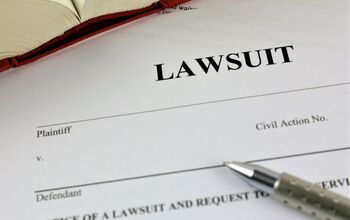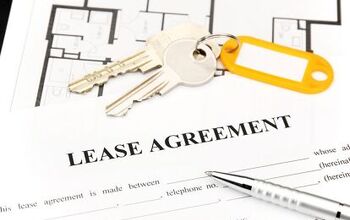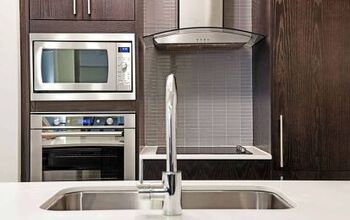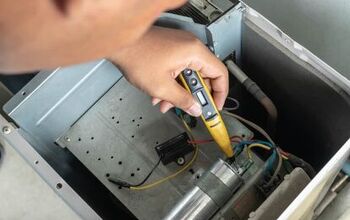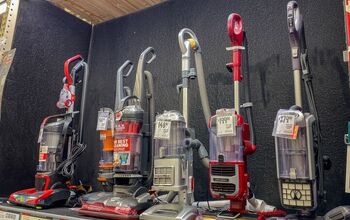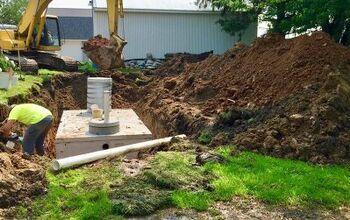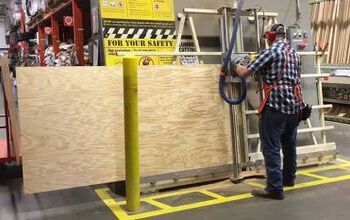Can My Landlord Take Pictures Without My Consent? (Find Out Now!)

Many tenants worry about how much privacy they’re entitled to when renting a property. This is especially true now, in the digital age, since it’s so easy to take and post photos. One common concern is whether or not your landlord can take photos of you and the property without your consent.
Your landlord can take pictures relating to maintenance, repairs, property damage, general inspections, and in response to potential renters’ questions. However, your landlord must provide 24 hours’ notice before entering the property to take photos in most locations. Generally, landlords cannot take photos of you or your personal belongings, especially if they plan to post them online.
In this article, we’ll talk about a tenant’s right to privacy and when it’s acceptable for landlords to take photos. We’ll also discuss whether photos taken specifically for virtual tours are an invasion of privacy. Finally, we’ll cover whether it’s okay for you and your personal belongings to appear in photos taken by your landlord.
A Tenant’s Right To Privacy
Even though a tenant rents rather than owns the property, they still have a right to privacy. Because of this right to privacy, landlords generally cannot take photos of the rental unit without the tenant’s consent.
There are a couple of exceptions to this general rule, though. If the lease states that photos can be taken, then the landlord doesn’t have to get additional consent. Photos taken for the specific purposes of maintenance and repairs typically do not require the tenant’s consent, either.
Situations In Which A Landlord Can Take Pictures
When can landlords take pictures of their tenant’s living space? Here are a few common situations in which this is usually acceptable.
Maintenance And Repairs
When maintenance and repairs are needed, it’s common to take photos of the issue at hand. Generally, this isn’t an invasion of the tenant’s privacy, especially if they requested that the landlord handle the problem.
The landlord must enter the property with advance notice and for the sole purpose of maintenance or repairs. As long as this is the case, taking pictures of the problem that needs to be addressed is acceptable. The pictures shouldn’t be used for any other purpose and should not be posted online.
Responding To Potential Renters’ Questions
Another situation in which a landlord may be able to take photos is to answer potential renters’ questions. Let’s say you plan to move out once your lease is up. This means that your landlord will need to find new renters to move in after your lease has ended.
These potential renters may have specific questions about the property that are best answered with photos. Generally, it’s considered acceptable for landlords to take pictures for this purpose.
Again, the landlord must enter the property with advance notice and take photos only for the stated purpose. They should not share the photos online, since this can be an invasion of privacy.
General Inspections
Landlords will often conduct a yearly inspection of their property to check up on their assets. They may take photos during the inspection to record the current condition of the property. It’s acceptable for landlords to document the results of their inspection.
In fact, it’s in everyone’s best interest (landlord and tenant) to have documentation of the state of the property. This can come in handy if any type of dispute ever occurs.
Like the other situations, your landlord should let you know in advance when they plan to conduct the inspection. However, they don’t necessarily have to let you know if they plan to take photos. It’s always best if they inform you that they’ll be taking pictures, but they’re not required to do so.
Property Damage
A final situation in which a landlord may take photos is to document property damage. Landlords obviously have a vested interest in the condition of their property, and they’ll want to record any damage. As long as your landlord provides advance notice that they’ll be stopping by, this is not considered an invasion of privacy.
Can Your Landlord Take Photos For A Virtual Tour?
Virtual tours of rental properties have become much more commonplace in recent years. But can your landlord take photos for a virtual tour when the property is filled with your personal belongings? That’s a bit of a gray area, as this can constitute a breach of tenant privacy.
A recent case ruled that posting photos of tenants’ belongings interfered with their reasonable enjoyment of the rental property. So, what if the landlord’s only purpose of entering the unit is to take photos that will be posted online? The tenant can refuse to let the landlord enter, and this isn’t likely to be grounds for eviction.
It’s smart for landlords to include a clause in the lease that allows them to take photos for virtual tours. They can also write up a separate document to obtain the tenant’s consent to take pictures for this purpose. This does not mean that they have a blanket right to take photos of the inside of the tenant’s living space, though.
What If Your Personal Property Appears In The Pictures?
Generally, even if your personal property appears in the photos, it is not considered a breach of privacy. The purpose of the photos cannot be specifically to capture images of your belongings. If your belongings are simply in the background and not the focus of the photo, this usually isn’t a problem.
If your landlord opens your dresser drawers and takes pictures of what’s inside, that’s a different story. Situations like this are considered an invasion of privacy. This is different from taking a photo of property damage where your belongings happen to be in the background.
Can Your Landlord Take Photos Of You Without Your Consent?
Unless you give explicit consent, your landlord cannot take photos of you. The law states that your landlord’s interest is in protecting their investment and their property. Taking photos of their tenants is not a part of protecting their investment.
Your landlord may be able to take photos of you if you’re committing an act of destruction on their property. Still, this is not the best course of action on their part. If they see a tenant destroying their property, they should contact local authorities rather than take pictures.
Does Your Landlord Need To Provide Advance Notice When Taking Photos?
Yes, your landlord must provide advance notice when they plan to enter the property and take pictures. In most locations, landlords are expected to provide at least 24 hours’ notice. Your landlord cannot simply stop by and take photos whenever they please.
In addition to providing advance notice, landlords must inform you of the reason for their visit. They usually need to disclose that they will be taking photos. Usually, landlords only take photos of property damage and things that need to be repaired.
Related Questions
Can my landlord take me to court?
Yes, there are several situations in which your landlord could take you to court. Sometimes, taking a tenant to court is the only way to receive money owed or receive compensation for additional damages. Unpaid rent, unpaid utility bills, and property damage are some reasons why a landlord might take a tenant to court.
Can my landlord take away my parking space?
Whether your landlord can take away your parking space depends on the terms of your lease. If the lease states that the parking space is provided to you, then your landlord generally cannot take it away. In some locations, they may be able to take it away if they lower your rent accordingly.
Can my landlord take my dog?
In most places, your landlord cannot simply stop by and remove your pet or force you to remove your pet. Instead, they have to go through an official legal process in order to have your pet removed.
Related Guide

With a lifelong passion for writing plus strong enthusiasm for home improvement and DIY projects, joining the team at Upgraded Home was an easy choice. Jessica Allen likes to share helpful information with current and aspiring homeowners. Aside from writing, Jessica loves doing yoga, playing the piano, and dabbling in graphic design.
More by Jessica Allen













